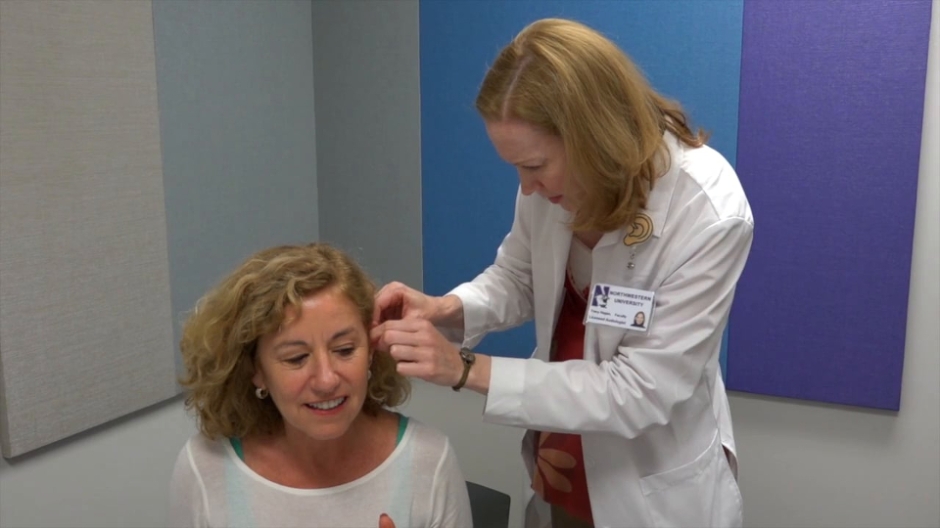After submitting my last blog post to Restored Hearing, Chrissy Hughes the Community Manager for Restored Hearing and I engaged in a bit of email conversation as we usually do every month, catching up on things we have missed and any future plans for posts etc when the subject turned to contact accessibility for the Deaf/hearing impaired, in particular email access to vital health services. . Chrissy herself knows many people who are deaf or who suffer from debilitating tinnitus and she is passionate about getting better access to companies/vital services such as GP surgeries and hospitals for the deaf and hearing impaired.
Through my own personal hearing loss, I have had first-hand knowledge of how difficult contacting companies, GPs and hospitals and other important services can be when you cannot hear on the telephone and do not have access to specific equipment.
Gov.uk tells us that “as a disabled person, you have rights to protect you from discrimination. These rights cover most areas including: employment, education and dealing with the police. The Equality Act 2010 and the United Nations (UN) Convention on disability rights help to enforce, protect and promote your rights.” However, hearing loss is very much an invisible disability and one that many people do not recognise enough despite over 11 million people suffering with some form of hearing loss.
Many GP surgeries book appointments or order repeat prescriptions via an automated telephone system, great if you are in a hurry and do not want to spend time discussing your various ailments with the receptionist but not so great if you are deaf or hearing impaired. For many, simply getting someone else to book the appointment for them is not an option and they may not be able to get to the surgery to book an appointment in person so how will they be able to see their GP?
Although some surgeries and indeed other organisations have specific text phones for the deaf, not all of us have the equipment ourselves. There are some other options available such as the Text Relay service through NGT which is available on most smart phones, but again, this isn’t an option for everyone. I personally found the NGT Text Relay to be frustrating and gave up quite quickly using this.
I believe that there should be better forms of communication open to us, that vital services such as GP surgeries/Hospitals/Police etc should be contactable via email. I understand in emergencies this shouldn’t be the case because of time delays but for general enquiries and booking appointments it should be a service available to us. The Disability Act is there to make the world more inclusive to EVERYONE but it currently does not do enough.
I would be interested to know your personal experiences with accessing health services and how you communicate with your GP, are there special provisions in place for you? Have any of you had experience with using the 999 Text service – is this efficient and useful?
Please do contact me on laura@theinvisibledisabilityandme.co.uk and share your stories.


Reblogged this on gethearingwordoresscom and commented:
This is really interesting and I have been campaigning with different services to get support and on the whole it has been quite good. I interact as a volunteer with some local public service meetings where lip speakers are paid for. The local GP centre agreed to put in special notes so that the GP comes out to call me rather than use the existing tannoy system and I can make appointments via email which works very well. Other areas are not so good such as request for an application for Personal Independence Payments (unsuccessful, no surprise there) where my husband had to speak on the phone repeating the questions and answers. Not very good. Our local police force has a special text number you can report non urgent incidents which is useful too although not had the need to use it yet. So things are moving on. I suspect that many the time that new approaches have been put in place only to be lost because people either don’t know about it or find it difficult to access because of lack of use. These are some general quick thoughts. So some good, some not so good.
One big issue of course is cost. Lip Speakers come at a high cost and this is often seen as a barrier for small organisations and the voluntary sector where every penny has to be raised from grants or services. A hard one that.
I think the major issue is that as a deaf person many of the communication struggles are just shrugged off by me and others as not worth the hassle. Everything I do is about first, is there support, second how do I get it, third is it worth it? But somehow you have to make that effort first before you move on.
I have just put in an application for a job. I had to email the organisation after getting an address off the existing post holder because the only way you could ask questions was by phone. No response to email, closing date today, no way of getting information needed. A daily battle this one.
Jackie Charlton
LikeLike